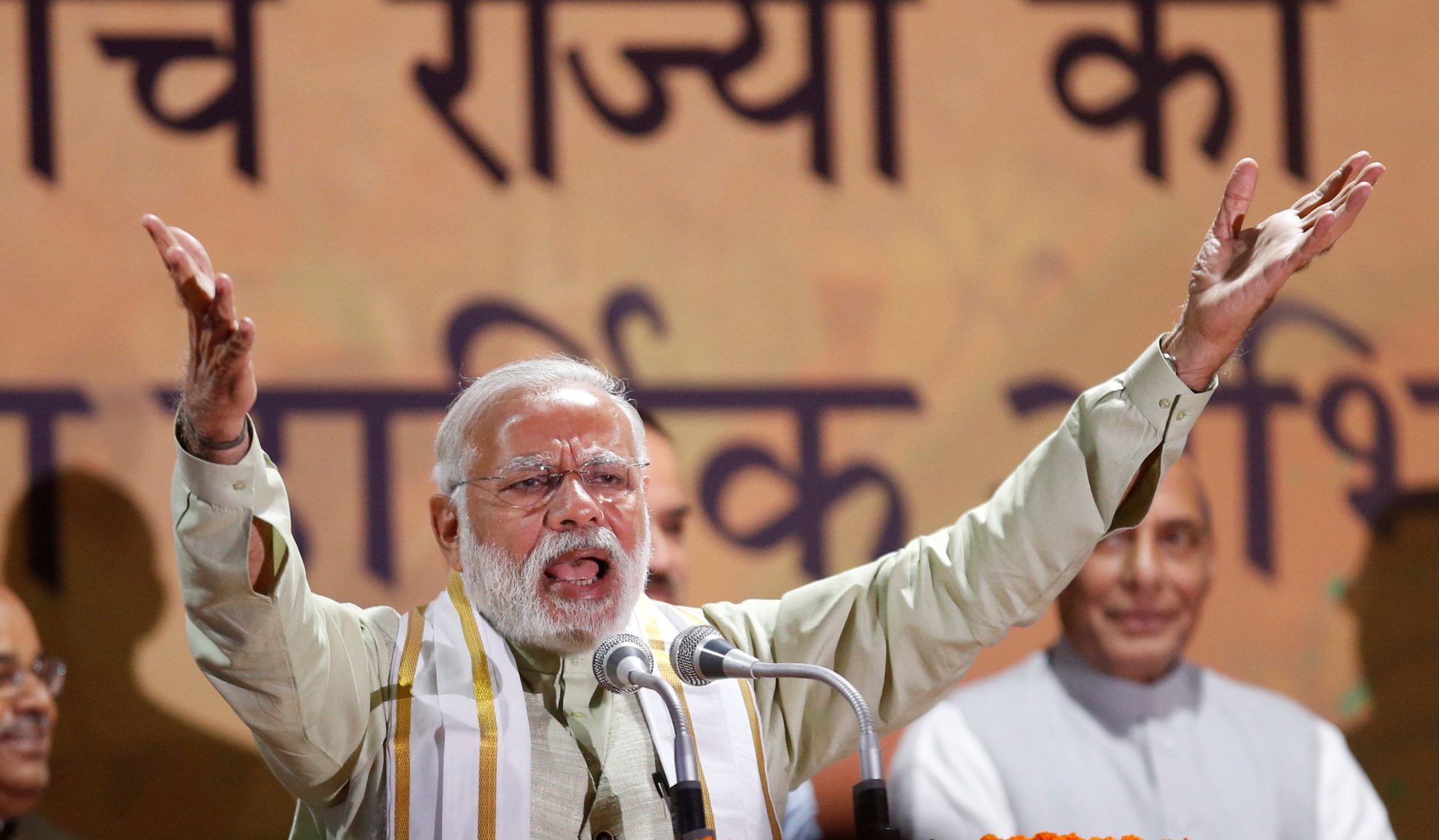Home » India’s BJP releases election for upcoming elections in bid to shore up voter support
India’s BJP releases election for upcoming elections in bid to shore up voter support


India’s ruling nationalist Bharatiya Janata Party (BJP) will release its manifesto today for the April 11-May 19 parliamentary elections, in a bid to repeat its landslide 282-seat haul in the 2014 vote.
The BJP’s main rival, the centre-left Indian National Congress, included a plan to give a $1,046 guaranteed annual income to India’s poorest in its manifesto released on April 2. It is part of the Rahul Gandhi-led party’s declared aim to eradicate poverty by 2030.
In contrast, the BJP is expected to maintain its traditional policies—assertive policy on Pakistan, income-support for farmers and tax-cuts for businesses and the middle class. The BJP is also expected to focus on job-creation initiatives.
Despite this, the manifesto is still likely to alienate some key BJP voting blocs from 2014. The traditionally INC voting Dalits swung heavily for the historically upper-caste aligned BJP at last election on the back of fellow lower-caste Prime Minister Narendra Modi’s popularity. However, the manifesto is unlikely to commit to strengthening anti-discrimination legislation to the extent demanded by Dalit advocates since 2014.
Consequently, a Dalit swing back to INC is expected. Although polls forecast the BJP’s coalition winning enough numbers to form government, the BJP may fail to match its massive 282-seat haul of 2014.
Wake up smarter with an assessment of the stories that will make headlines in the next 24 hours. Download The Daily Brief.
John is a Senior Analyst with an interest in Indo-Pacific geopolitics. Master of International Relations (Australian National University) graduate with study focus on the Indo-Pacific. Qualified lawyer (University of Auckland, NZ) with experience in post-colonial Pacific & NZ legal systems.

